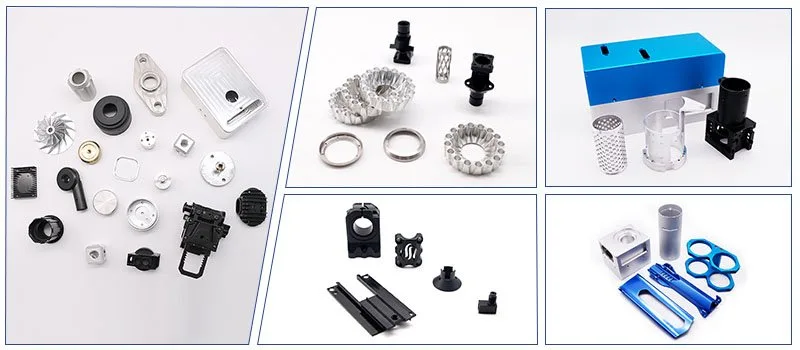In CNC machining, material selection is critical in determining the performance and quality of the final product. Two of the most commonly used plastics in manufacturing are nylon and polypropylene, each offering unique properties that affect their machinability and suitability for different applications. At YL Machining, we specialize in machining a wide range of materials, including plastics like nylon and polypropylene, ensuring the highest precision and quality for your project.
In this article, we will explore the key differences in CNC machining properties between nylon and polypropylene, and how YL Machining helps clients navigate these differences to achieve the best results.
Impact of Material Choice on CNC Machining
Choosing the wrong material for CNC machining can lead to a number of problems, including:
- Increased tool wear, leading to higher production costs.
- Surface defects and poor part quality.
- Production delays due to machining difficulties or material inconsistencies.
Understanding the unique properties of nylon and polypropylene allows for more efficient machining and better performance in the final product.
Nylon vs. Polypropylene: Key Differences in CNC Machining
1. Material Properties and Strength
- Nylon: Nylon is known for its high strength, toughness, and resistance to abrasion. It is also highly resistant to wear and has a low coefficient of friction, making it ideal for parts that experience a lot of mechanical stress. However, nylon is hygroscopic, meaning it absorbs moisture from the air, which can affect its dimensions and properties during machining if not properly managed.
- Polypropylene: Polypropylene is a lighter material compared to nylon and offers excellent chemical resistance, making it ideal for use in corrosive environments. However, it is softer and less stiff than nylon, which makes it easier to machine but less suitable for applications requiring high mechanical strength.
2. Machinability
- Nylon: Machining nylon requires careful consideration of its moisture absorption properties. If the material has absorbed too much moisture, it can become soft and deform during machining. Special care must be taken with cutting speeds and feed rates to avoid overheating, which could cause melting or warping. Nylon’s toughness can also lead to higher tool wear if inappropriate cutting tools are used.
- Polypropylene: Polypropylene is generally easier to machine than nylon due to its lower density and softer nature. It requires lower cutting forces, which translates to faster machining times and less tool wear. However, polypropylene’s lower melting point can cause problems if cutting speeds are too high, potentially leading to deformation or a rough surface finish.
3. Surface Finish and Tolerances
- Nylon: Nylon can achieve a smooth surface finish when machined properly, but its tendency to absorb moisture can lead to dimensional changes after machining. This makes it harder to maintain tight tolerances. Post-machining drying or conditioning may be required to stabilize the material and ensure dimensional accuracy.
- Polypropylene: Due to its lower stiffness, polypropylene is more prone to deflection during machining, which can affect the precision of the final product. Achieving tight tolerances may require slower cutting speeds and careful fixturing. Despite this, polypropylene typically results in a smoother surface finish with less post-processing required compared to nylon.
4. Applications
- Nylon: Given its strength and wear resistance, nylon is often used for parts such as gears, bearings, bushings, and other mechanical components that require durability and the ability to withstand friction and stress. However, its moisture absorption limits its use in high-humidity or wet environments unless stabilized.
- Polypropylene: Polypropylene’s chemical resistance makes it ideal for parts used in corrosive environments, such as chemical tanks, piping, and laboratory equipment. It is also used in applications where weight savings are important, as it is lighter than nylon. However, its lower strength limits its use in high-stress mechanical applications.
YL Machining: Expertise in Nylon and Polypropylene CNC Machining
At YL Machining, we have the tools, technology, and expertise to handle the specific challenges that come with machining both nylon and polypropylene. We ensure that every project meets the highest standards of quality and precision, no matter the material.
How We Address Nylon’s Challenges:
- Moisture Control: We store and prepare nylon materials in controlled environments to minimize moisture absorption, ensuring dimensional stability during machining.
- Tooling and Techniques: Our team uses specialized cutting tools and optimized machining techniques to manage nylon’s toughness and prevent excessive tool wear. We also carefully regulate cutting speeds to avoid heat-related issues.
How We Optimize Polypropylene Machining:
- Careful Fixturing: To account for polypropylene’s softness and flexibility, we use advanced fixturing techniques that minimize material deflection during machining, ensuring precise and accurate results.
- Coolant and Lubrication: We use the proper coolants and lubricants to manage heat buildup, preventing surface defects or melting during high-speed machining.
What More Can We Solve for You?
Beyond nylon and polypropylene machining, YL Machining offers a wide range of CNC machining services for various materials, including metals and other engineering plastics. We have experience with complex geometries, tight tolerances, and high-precision components for industries such as aerospace, automotive, medical, and consumer products.
We also provide:
- Rapid Prototyping: Fast and accurate prototype production to test designs and concepts before full-scale manufacturing.
- Custom Machining Solutions: Tailored CNC machining services for specialized applications that require advanced techniques and materials.
- Surface Finishing: Post-machining processes such as polishing, coating, and anodizing to enhance part performance and appearance.
Conclusion
When choosing between nylon and polypropylene for CNC machining, it’s important to consider the specific requirements of your application, such as strength, chemical resistance, and machinability. At YL Machining, we are equipped with the knowledge, technology, and experience to help you make the right choice and deliver high-quality, precision-machined parts.
Contact us today to discuss your CNC machining needs and discover how we can help you achieve the best results with nylon, polypropylene, or any other material.





